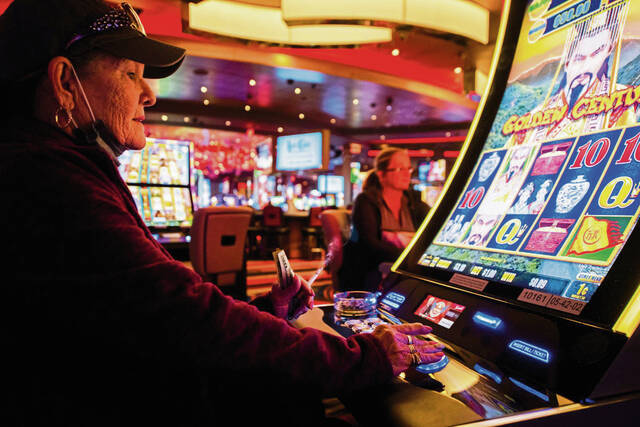We all know the phrase from Pennsylvania Lottery commercials: “… benefits older Pennsylvanians.” But many people don’t realize just how important lottery proceeds are to charities and nonprofits across the commonwealth, and how many seniors rely on the services those organizations provide.
Our lottery remains the only state lottery that designates all its proceeds to programs for older residents, including senior centers, low-cost prescription drugs, free transit and reduced costs for shared rides, property tax and rent rebates, and long-term living services.
In short: The lottery helps older Pennsylvanians live healthier, more independent lives.
What many Pennsylvanians perhaps do not realize is that the explosion of so-called “skill” games, which the Pennsylvania State Police and Office of Attorney General contend are illegal, across Pennsylvania is draining millions of dollars from lifesaving programs for seniors that are funded by the Pennsylvania Lottery.
A lottery report states, “… we show detailed analyses that estimate more than $650 million in Pennsylvania Lottery scratch sales have been lost to unregulated Games of Skill machines across the Commonwealth.” Those lost sales would have “generated over $200 million more for older Pennsylvanians and local businesses … .”
Every dollar pumped into one of these machines that have proliferated across our communities, in gas stations, pizza joints, laundromats, thrift shops or unlicensed “gaming parlors,” comes at the expense of an older Pennsylvanian who relies on Meals on Wheels, affordable prescriptions or other programs at a local senior center.
And it is not just the important proceeds generated by the lottery in jeopardy. The operators of “skill” games, no matter where these machines are placed, are threatening jobs in the casino industry and the $2 billion in state tax revenues generated by the industry that benefits all Pennsylvania taxpayers.
Skill games operators do not pay a single penny in state gaming taxes.
By comparison, in 2022, the state’s casinos generated $2,123,015,118 in gaming tax revenues for taxpayers. (It is important to see the entire contribution because skill games operators did not even match the last $118 generated by casinos.) To be clear: Casinos provided more than $2.1 billion in just one year.
At least 11 of the state’s regulated and supervised casinos have petitioned the Pennsylvania Gaming Control Board (PGCB) to reduce the number of slot machines they operate because of the unfair competition posed by “skill” games.
Casinos provide 20,000-plus jobs, support businesses across the state, and have invested billions of dollars in capital projects such as hotels, restaurants and other amenities beyond the casino floor.
Skill games operators plug a machine into the wall and reap millions for it.
At licensed, regulated casinos, each slot machine is tested by an outside firm and by the PGCB to ensure that it is running properly and meets the state’s 85% payout requirement.
“Skills” games are not tested, regulated or supervised by the state or anyone else in Pennsylvania.
Every casino owner makes extraordinary investments in security and employee training to prevent underage people from gaming. Every casino has “eye-in-the-sky” cameras to monitor all activities. Obviously, no gas station or neighborhood pizza parlor has this technology or makes these investments.
Finally, the Pennsylvania State Police, the Office of the Attorney General, the PGCB and the Office of the Governor have stated publicly and/or testified before lawmakers that these “skills game” machines are illegal. (There are two cases now before the Commonwealth Court regarding the legality of the machines.)
Despite these impacts and the position of these agencies, these unregulated machines are seemingly everywhere. There are upwards of 70,000-plus of these “skill” games in Pennsylvania, nearly triple the number of legal, licensed and regulated slot machines in the state’s casinos.
Pennsylvania State Police and local law enforcement need to ramp up enforcement actions and remove these machines, especially from corner stores and other businesses that serve children. Lawmakers must tighten state law to address the growing threat these machines pose to the health and well-being of older Pennsylvanians.
Pete Shelly is a spokesman for Pennsylvanians Against Gaming Expansion (paagainstgamingexpansion.com).








